NIL
Texas Tech Dominating Recruiting in Football, Softball
Share Tweet Share Share Email What’s going on in the Big 12 and beyond? I expand and explain every Sunday in Postscripts at Heartland College Sports, your home for independent Big 12 coverage. This week, Texas Tech softball is making waves again and the reality is much more interesting than the controversy. TEXAS TECH […]
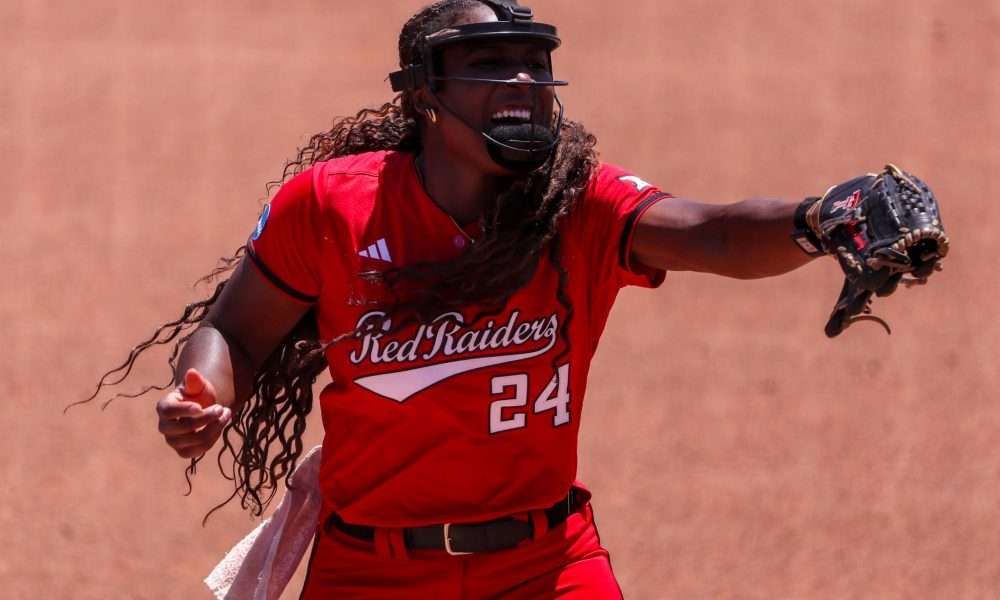
What’s going on in the Big 12 and beyond? I expand and explain every Sunday in Postscripts at Heartland College Sports, your home for independent Big 12 coverage.
This week, Texas Tech softball is making waves again and the reality is much more interesting than the controversy.
TEXAS TECH SOFTBALL’S HUGE WEEK
Texas Tech softball just wrapped up an epic season in which it won its first Big 12 title, reached the Women’s College World Series for the first time and reach the WCWS championship series, where Tech lost to Texas in three games.
So, what did Texas Tech do for an encore? Attack the transfer portal like Tom Cruise plans Mission: Impossible stunts.
By Thursday, the Lady Raiders had done this in the transfer portal.
That’s four of the Top 30 players in the transfer portal. Then, late Thursday, they made waves again by luring Tennessee transfer Taylor Pannell, a fourth Top 10 transfer.
That got folks up in Knoxville all up in their feels. How dare a Lady Vol head to … Lubbock?
Naturally, everyone thinks it’s about NIL money and, well, that’s not entirely inaccurate.
Maren Angus-Coombs at Softball On SI wrote about Texas Tech’s work in the transfer portal she put together a solid piece on how it’s all gone down. Yes, NIL is part of the deal. But some on social media have accused Texas Tech of tampering with players.
She reported that Texas Tech was not contacting players while they were still at their schools. But she also reported this:
The Matador Club, Texas Tech’s Name, Image and Likeness collective, and coach Nathan Nelson of Hotshots Fastpitch, a travel organization based in Texas, have reportedly been heavily involved in this process.
There are NCAA rules preventing schools and coaches like Tech’s Gerry Glasco from contacting players at other schools. Those same rules apply in professional sports. But third parties aren’t barred from doing so. Angus-Coombs made that clear in her reporting, too. So, you may not like it, but there’s no rule against it. Her reporting was extensive. Another paragraph:
Ten sources confirmed with Softball On SI that Nelson or The Matador Club also contacted Taylor Pannell, Isa Torres, Dakota Kennedy, Reese Atwood, Kasidi Pickering, Maci Bergeron, Dez Spearman, and Tori Edwards.
The article made clear that Texas Tech hasn’t broken any rules. The Matador Club hasn’t, either. It’s a loophole. As you might expect, there were plenty of takes. I have a few.
Blue Bloods Get Taste of Their Own Medicine
First, the pearl-clutching is on a level that is hard to wrap one’s brain around. I mean, we’re going to act like this isn’t happening in every major college sport? How on earth do you think Lincoln Riley got from Oklahoma to USC so fast a few years ago? His agent laid the groundwork for two months. That’s how it works for coaches. That’s why they have agents.
Many of these players have representation now. It’s not their right to allow their agents to work for them while they play to see if there is a better deal out there? I’ve covered college and pro athletes for decades. They can survey the field and still stay focused on their job. It’s actually not that hard.
This sort of thing been happening since NIL started. While I’m certainly a rule-follower, the rules around NIL since the Alston ruling in June of 2021 have basically been non-existent. Even now, with the House settlement complete and NIL Go getting on the ground, many things are still up in the air.
Second, Nelson’s reported involvement got a lot of attention (he didn’t comment for the story). He coached four of the players with Hotshots, per the article.
So? Do we need to discuss AAU basketball coaches “directing” players to certain programs for the past three decades? Or how new college football head coaches hire sitting high school head coaches for credibility with in-state recruits?
How do you think Joey McGuire got his foot in the door? Former Baylor coach Matt Rhule hired him out of Cedar Hill High School because he knew the respect level for McGuire in-state was off the charts. Same went for UTSA head coach Jeff Traylor, then at Gilmer High School, when he was hired by Charlie Strong at Texas.
Third, and perhaps most importantly, Texas Tech just gave the country the best recruiting pitch possible. Texas Tech nearly won a national title and has the top pitcher in softball returning in NiJaree Canady on a reported $1.2 million NIL deal. Who wouldn’t want to play alongside her next season?
Will Howard didn’t just go to Ohio State because he knew he wasn’t going to play at Kansas State in 2024. He wanted a shot at a national title. And he got one. Winning is still the ultimate aphrodisiac.
So, what is this REALLY about? To me it’s about two things — it’s not football and it’s TEXAS TECH?! Yes, it’s Texas Tech, and they’ve been building for this right under your noses.
I’ve lived in Texas most of my life. Growing up, it was either Texas or Texas A&M for most kids, unless they had a direct tie to a school like Tech. When you become an adult, that changes. For instance, my niece just graduated from Tech with a degree in Kinesiology. She’s Guns Up all day now. But before that? She barely talked about Tech. She got there because her high school powerlifting coach went to Tech. Yes, my niece can probably beat up your niece.
We forget that it’s been four years since Texas and Oklahoma announced they were leaving for the SEC. That was the same year as the Alston ruling. After the Big 12 opted to stay together and expand, some programs started to figure out there was a void to be filled. Tech was one of the first to start building for this new world.
That new football facility at Jones AT&T Stadium? That didn’t sprout up like a chia pet. That took years to accomplish, and athletic director Kirby Hocutt started planning for that shortly after the UT/OU schism.
The Matador Club got started on NIL shortly after the Alston ruling. But, unlike most collectives at the time, it didn’t just focus on football. The Matador Club focused on football, men’s and women’s basketball, baseball and softball to begin with. It distributed equal stipends to athletes in those sports. Word started getting around.
When I talked to Lady Raiders basketball coach Krista Gerlich about it a few years ago at Big 12 media days, the appreciation was clear. So was the acknowledgement that, at the time, most of her other colleagues didn’t have that level of support.
This isn’t happening just because uber-booster Cody Campbell has a bag (well, he actually has bags to spare these days). This is happening because that community is committed to each of its sports, not JUST the ones that bring in all the revenue. Yes, the football transfer portal class at Tech is insane too. Should Tech’s softball transfer class be just as loco?
That’s where the other double-standard comes in. Much has been written about Tech’s football transfer class, including here at Heartland College Sports. It’s been written about like “this is just how it works now” and that’s true. Between NIL, recruiting pitches and impending revenue-share the Red Raiders put together a mammoth class.
But, this is softball, so heaven forbid a school attack the portal with the same vigor, right? And heaven forbid it be a school like Texas Tech, which isn’t a “university of.” And the NIL money? Gulp. Shouldn’t that go to football? It almost feels like there’s a hint of “know your place” going on here.
So, what’s good for football isn’t as good for softball? No, sir. It’s just as good for both, and if Tech’s collectives want to bankroll both, what’s the problem?
I think that’s part of the problem — the acceptability of spending on football and not on other sports.
I’m sure the rules around third-party involvement in these recruitments will change at some point. That’s how this works. Loopholes are found, exploited and closed.
But, for now, no one is really doing anything wrong here. They’re not breaking the rules. We can have a longer discussion about ethics, if you like. But this is what every athletic team and program has done since sports started — they’re pushing the envelope.
So while Tech’s building a softball superpower, make sure you don’t clutch those pearls so tight. They’re liable to leave a mark.
You can find Matthew Postins on Twitter @PostinsPostcard.
NIL
Jason Caldwell’s Friday mailbag column
Greg1716: What 1 or 2 rules changes would Jason Caldwell like to see in college football? How involved – if any – is the coaching staff with data/analytics with regards to game planning, game management, roster management etc. And given the NFL is moving rapidly into incorporating and using AI now to develop analytic models […]

Greg1716: What 1 or 2 rules changes would Jason Caldwell like to see in college football? How involved – if any – is the coaching staff with data/analytics with regards to game planning, game management, roster management etc. And given the NFL is moving rapidly into incorporating and using AI now to develop analytic models would Auburn experiment with any AI?
I really haven’t thought much about it in terms of actual football being played. Mine would mostly be on the payment side of things and trying to fix that. I think they need to move to employer/employee status and having contracts if we’re going to continue paying athletes like this. Hopefully this new system will actually hold up because that would help. Auburn uses analytics in every sport. Not sure exactly how it works with football other than tendencies, scouting, etc.
NIL
The new college sports agency is rejecting some athlete NIL deals with donor-backed collectives
FILE — Camp Randall Stadium is seen during an NCAA college football game between Wisconsin and Miami of Ohio, Sept. 12, 2015, in Madison, Wis. (AP Photo/Aaron Gash, File) AP The new agency in charge of regulating name, image, likeness deals in college sports sent a letter to schools Thursday saying it had rejected deals […]
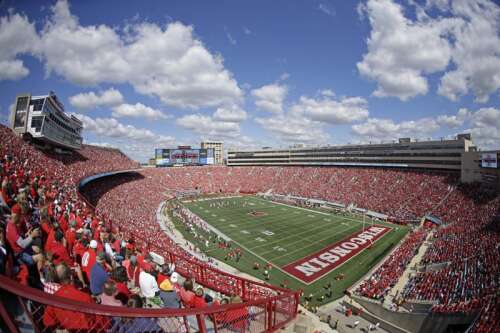
FILE — Camp Randall Stadium is seen during an NCAA college football game between Wisconsin and Miami of Ohio, Sept. 12, 2015, in Madison, Wis. (AP Photo/Aaron Gash, File)
AP
The new agency in charge of regulating name, image, likeness deals in college sports sent a letter to schools Thursday saying it had rejected deals between players and donor-backed collectives formed over the past several years to funnel money to athletes or their schools.
Those arrangements hold no “valid business purpose,” the memo said, and don’t adhere to rules that call for outside NIL deals to be between players and companies that provide goods or services to the general public for profit.
The letter to Division I athletic directors could be the next step in shuttering today’s version of the collective, groups that are closely affiliated with schools and that, in the early days of NIL after July 2021, proved the most efficient way for schools to indirectly cut deals with players.
Since then, the landscape has changed yet again with the $2.8 billion House settlement that allows schools to pay the players directly as of July 1.
Already, collectives affiliated with Colorado, Alabama, Notre Dame, Georgia and others have announced they’re shutting down. Georgia, Ohio State and Illinois are among those that have announced plans with Learfield, a media and technology company with decades of licensing and other experience across college athletics, to help arrange NIL deals.
Outside deals between athlete and sponsor are still permitted, but any worth $600 or more have to be vetted by a clearinghouse called NIL Go that was established by the new College Sports Commission and is being run by the auditing group Deloitte.
In its letter to the ADs, the CSC said more than 1,500 deals have been cleared since NIL Go launched on June 11, “ranging in value from three figures to seven figures.” More than 12,000 athletes and 1,100 institutional users have registered to use the system.
But the bulk of the letter explained that many deals could not be cleared because they did not conform to an NCAA rule that sets a “valid business purpose” standard for deals to be approved.
The letter explained that if a collective reaches a deal with an athlete to appear on behalf of the collective, which charges an admission fee, the standard is not met because the purpose of the event is to raise money to pay athletes, not to provide goods or services available to the general public for profit.
The same would apply to a deal an athlete makes to sell merchandise to raise money to pay that player because the purpose of “selling merchandise is to raise money to pay that student-athlete and potentially other student-athletes at a particular school or schools, which is not a valid business purpose” according to the NCAA rule.
Sports attorney Darren Heitner, who deals in NIL, said the guidance “could disproportionately burden collectives that are already committed to spending money on players for multiple years to come.”
“If a pattern of rejections results from collective deals submitted to Deloitte, it may invite legal scrutiny under antitrust principles,” he said.
On a separate track, some college sports leaders, including the NCAA, are seeking a limited form of antitrust protection from Congress.
The letter said a NIL deal could be approved if, for instance, the businesses paying the players had a broader purpose than simply acting as a collective. The letter uses a golf course or apparel company as examples.
“In other words, NIL collectives may act as marketing agencies that match student-athletes with businesses that have a valid business purpose and seek to use the student’s NIL to promote their businesses,” the letter said.
NIL
The new college sports agency is rejecting some athlete NIL deals with donor-backed collectives
The new agency in charge of regulating name, image, likeness deals in college sports sent a letter to schools Thursday saying it had rejected deals between players and donor-backed collectives formed over the past several years to funnel money to athletes or their schools. Those arrangements hold no “valid business purpose,” the memo said, and […]

The new agency in charge of regulating name, image, likeness deals in college sports sent a letter to schools Thursday saying it had rejected deals between players and donor-backed collectives formed over the past several years to funnel money to athletes or their schools.
Those arrangements hold no “valid business purpose,” the memo said, and don’t adhere to rules that call for outside NIL deals to be between players and companies that provide goods or services to the general public for profit.
Advertisement
The letter to Division I athletic directors could be the next step in shuttering today’s version of the collective, groups that are closely affiliated with schools and that, in the early days of NIL after July 2021, proved the most efficient way for schools to indirectly cut deals with players.
Since then, the landscape has changed yet again with the $2.8 billion House settlement that allows schools to pay the players directly as of July 1.
Already, collectives affiliated with Colorado, Alabama, Notre Dame, Georgia and others have announced they’re shutting down. Georgia, Ohio State and Illinois are among those that have announced plans with Learfield, a media and technology company with decades of licensing and other experience across college athletics, to help arrange NIL deals.
Outside deals between athlete and sponsor are still permitted, but any worth $600 or more have to be vetted by a clearinghouse called NIL Go that was established by the new College Sports Commission and is being run by the auditing group Deloitte.
Advertisement
In its letter to the ADs, the CSC said more than 1,500 deals have been cleared since NIL Go launched on June 11, “ranging in value from three figures to seven figures.” More than 12,000 athletes and 1,100 institutional users have registered to use the system.
But the bulk of the letter explained that many deals could not be cleared because they did not conform to an NCAA rule that sets a “valid business purpose” standard for deals to be approved.
The letter explained that if a collective reaches a deal with an athlete to appear on behalf of the collective, which charges an admission fee, the standard is not met because the purpose of the event is to raise money to pay athletes, not to provide goods or services available to the general public for profit.
The same would apply to a deal an athlete makes to sell merchandise to raise money to pay that player because the purpose of “selling merchandise is to raise money to pay that student-athlete and potentially other student-athletes at a particular school or schools, which is not a valid business purpose” according to the NCAA rule.
Advertisement
Sports attorney Darren Heitner, who deals in NIL, said the guidance “could disproportionately burden collectives that are already committed to spending money on players for multiple years to come.”
“If a pattern of rejections results from collective deals submitted to Deloitte, it may invite legal scrutiny under antitrust principles,” he said.
On a separate track, some college sports leaders, including the NCAA, are seeking a limited form of antitrust protection from Congress.
The letter said a NIL deal could be approved if, for instance, the businesses paying the players had a broader purpose than simply acting as a collective. The letter uses a golf course or apparel company as examples.
Advertisement
“In other words, NIL collectives may act as marketing agencies that match student-athletes with businesses that have a valid business purpose and seek to use the student’s NIL to promote their businesses,” the letter said.
___
AP college sports: https://apnews.com/hub/college-sports
NIL
NCAA Under Fire After Deion Sanders Advocates for NIL Cap in College Football
NCAA Under Fire After Deion Sanders Advocates for NIL Cap in College Football originally appeared on Athlon Sports. The NCAA received some criticism after Colorado Buffaloes coach Deion Sanders proposed a solution to one of college football’s rising concerns. Advertisement Coach Prime said he wants to create an NIL salary cap similar to the system […]
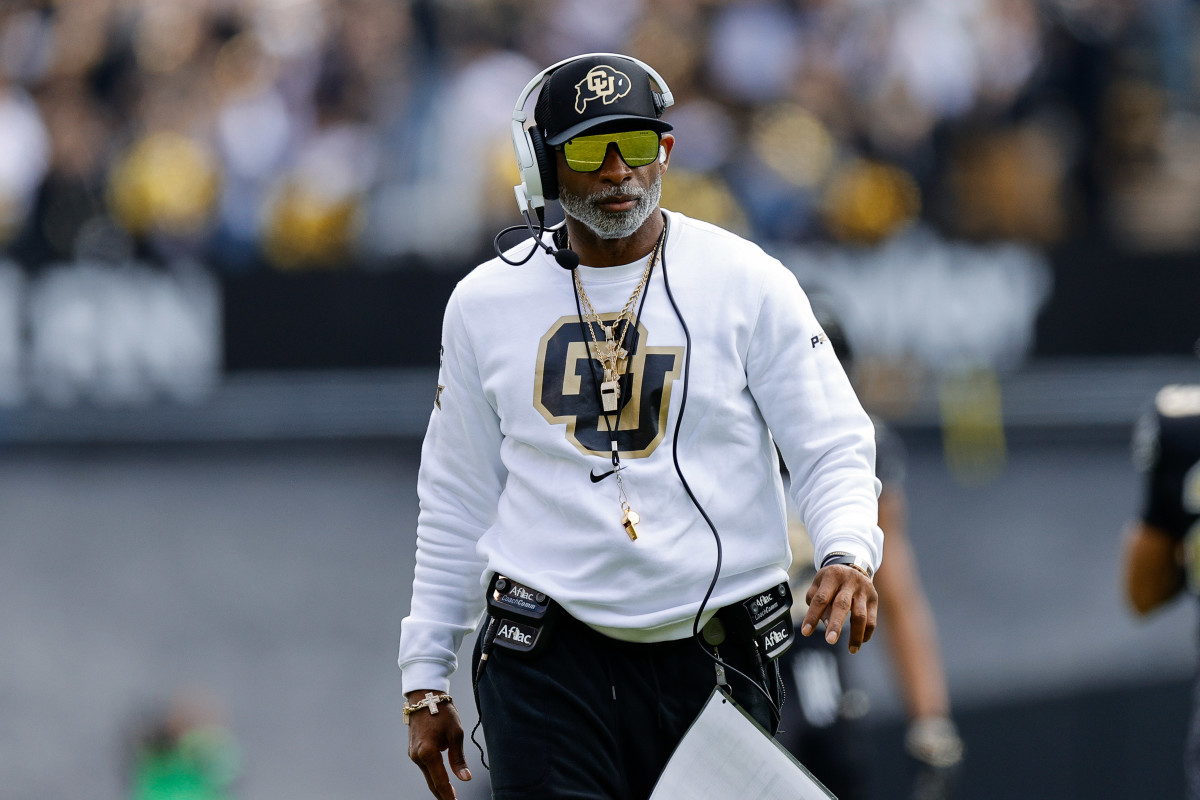
NCAA Under Fire After Deion Sanders Advocates for NIL Cap in College Football originally appeared on Athlon Sports.
The NCAA received some criticism after Colorado Buffaloes coach Deion Sanders proposed a solution to one of college football’s rising concerns.
Advertisement
Coach Prime said he wants to create an NIL salary cap similar to the system used in the NFL to create equal spending opportunities. Sanders came up with this idea after witnessing numerous SEC and Big 10 schools spend millions to recruit incoming freshmen.
“So the problem is, you got a guy that’s not that darn good, but he could go to another school and they give him a half million dollars,” Sanders said during the Big 12 media days on Wednesday. “You can’t compete with that. And it don’t make sense.”

Colorado Buffaloes head coach Deion Sanders reacts against the Arizona State Sun DevilsMark J. Rebilas-Imagn Images
The Alabama Crimson Tide raised its spending by 82% in 2024. Due to these schools having high amounts or spending Sanders thinks this has created a disparity because programs like Colorado don’t receive as much funding as the Crimson Tide, making it harder for them to attract recruits.
Advertisement
“You understand darn near why they’re in the playoffs,” Sanders added. “It’s kind of hard to compete with somebody who’s giving $25-30 million to a freshman class. It’s crazy.”
Furthermore, due to the House v NCAA settlement, schools can pay their athletes through a revenue-sharing pool, capped at $20.5 million. However, that amount could rise to $30 million by 2035 as schools begin putting more money into their NIL funds.
According to NFL reporter Albert Breer, some see this outcome as a failure on the NCAA’s end because they could have organized a system to properly send out NIL funding.
“I think there was an opportunity over the last 20 years for the NCAA [and] the conferences to get a hold of this early and create some sort of order, rules and guard rails,” Breer said during a recent episode of “The Herd with Colin Cowherd.”
Advertisement
“And unfortunately, there wasn’t the leadership at the NCAA level with guys like Mark Emmert to do that. Those guys were more concerned with collecting every check until the money train stopped rolling, so now everybody else was left to pick up the pieces. And I think it’s sort of unpredictable which way that will all go.”
Related: Deion Sanders Delivers Verdict on Deion Sanders Jr.’s Recent Nike Collaboration
This story was originally reported by Athlon Sports on Jul 11, 2025, where it first appeared.
NIL
The new college sports agency is rejecting some athlete NIL deals with donor-backed collectives – Twin Cities
The new agency in charge of regulating name, image, likeness deals in college sports sent a letter to schools Thursday saying it had rejected deals between players and donor-backed collectives formed over the past several years to funnel money to athletes or their schools. Those arrangements hold no “valid business purpose,” the memo said, and […]
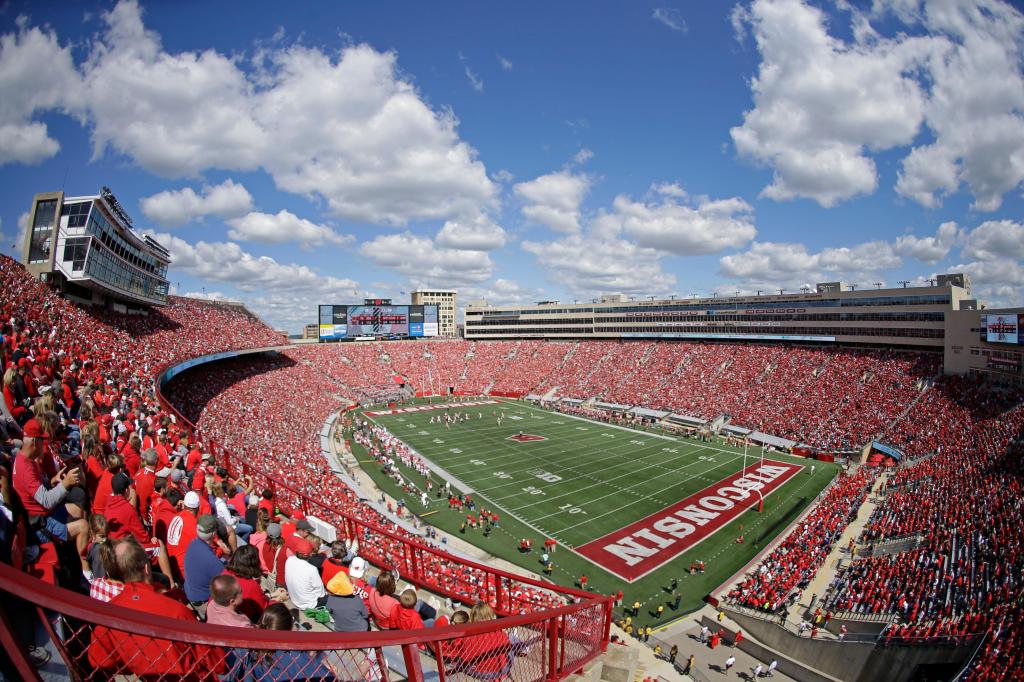
The new agency in charge of regulating name, image, likeness deals in college sports sent a letter to schools Thursday saying it had rejected deals between players and donor-backed collectives formed over the past several years to funnel money to athletes or their schools.
Those arrangements hold no “valid business purpose,” the memo said, and don’t adhere to rules that call for outside NIL deals to be between players and companies that provide goods or services to the general public for profit.
The letter to Division I athletic directors could be the next step in shuttering today’s version of the collective, groups that are closely affiliated with schools and that, in the early days of NIL after July 2021, proved the most efficient way for schools to indirectly cut deals with players.
Since then, the landscape has changed yet again with the $2.8 billion House settlement that allows schools to pay the players directly as of July 1.
Already, collectives affiliated with Colorado, Alabama, Notre Dame, Georgia and others have announced they’re shutting down. Georgia, Ohio State and Illinois are among those that have announced plans with Learfield, a media and technology company with decades of licensing and other experience across college athletics, to help arrange NIL deals.
Outside deals between athlete and sponsor are still permitted, but any worth $600 or more have to be vetted by a clearinghouse called NIL Go that was established by the new College Sports Commission and is being run by the auditing group Deloitte.
In its letter to the ADs, the CSC said more than 1,500 deals have been cleared since NIL Go launched on June 11, “ranging in value from three figures to seven figures.” More than 12,000 athletes and 1,100 institutional users have registered to use the system.
But the bulk of the letter explained that many deals could not be cleared because they did not conform to an NCAA rule that sets a “valid business purpose” standard for deals to be approved.
The letter explained that if a collective reaches a deal with an athlete to appear on behalf of the collective, which charges an admission fee, the standard is not met because the purpose of the event is to raise money to pay athletes, not to provide goods or services available to the general public for profit.
The same would apply to a deal an athlete makes to sell merchandise to raise money to pay that player because the purpose of “selling merchandise is to raise money to pay that student-athlete and potentially other student-athletes at a particular school or schools, which is not a valid business purpose” according to the NCAA rule.
Sports attorney Darren Heitner, who deals in NIL, said the guidance “could disproportionately burden collectives that are already committed to spending money on players for multiple years to come.”
“If a pattern of rejections results from collective deals submitted to Deloitte, it may invite legal scrutiny under antitrust principles,” he said.
On a separate track, some college sports leaders, including the NCAA, are seeking a limited form of antitrust protection from Congress.
The letter said a NIL deal could be approved if, for instance, the businesses paying the players had a broader purpose than simply acting as a collective. The letter uses a golf course or apparel company as examples.
“In other words, NIL collectives may act as marketing agencies that match student-athletes with businesses that have a valid business purpose and seek to use the student’s NIL to promote their businesses,” the letter said.
Originally Published:
NIL
Florida Gators donor Gary Condron wants to see ‘guardrails’ for NIL
USA TODAY Sports spoke with more than 10 boosters at high profile power conference schools about NIL, and only two talked on the record. One of them was University of Florida booster Gary Condron, the largest single financial donor in the history of Gator Boosters, Inc. USA TODAY Sports also interviewed and profiled Texas Tech […]

USA TODAY Sports spoke with more than 10 boosters at high profile power conference schools about NIL, and only two talked on the record. One of them was University of Florida booster Gary Condron, the largest single financial donor in the history of Gator Boosters, Inc.
USA TODAY Sports also interviewed and profiled Texas Tech billionaire booster Cody Campbell, who is working to reform the NIL space and “save college sports”, writes Matt Hayes. Hayes spoke to Condron about the current state of name, image and likeness.
“NIL space for boosters is like throwing money into a deep, dark hole with little to no return on the investment,” Condron said. “Nobody likes this. Not athletic directors, not coaches, not boosters. The only ones who like it are the players, and the attorneys and agents.”
Condron, 67, was a walk-on baseball player at Florida in the mid-1970s and graduated from UF in 1977 with a degree in building construction. He’s the CEO and founder of The Conlan Company, one of the leading builders for Amazon’s distribution centers around the country.
In addition to his support for Gator Boosters, Inc., Condron has helped fund the rosters for football, men’s basketball, baseball and other UF sports. He recently donated $1 million to Todd Golden’s program after his team won the 2025 national championship and the SEC Tournament.
“Gary’s been incredibly impactful on our success. I’m pretty sure, for football, baseball. He’s done a lot for all these different programs. Gary deserves a ton of credit for the success, because players are incredibly important,” Golden said of Condron after the title celebration at halftime of the spring football game.
“Gary gave us a great gift – and the reality of it is we need a lot more. We need a lot more to retain our players.”
Golden, who also thanked several other donors for their contributions, was able to retain his top frontcourt players and also signed one of the nation’s best transfer classes with three top-100 signees, adding a total of five players to the backcourt with a pair of top-50 recruits.
Condron’s efforts also helped Florida football coach Billy Napier close strong in the 2025 recruiting cycle and UF baseball coach Kevin O’Sullivan reload with his 2025 class, which currently consists of nine transfers and 12 recruits, including Jaden Bastian, Aaron Watson and Jordan Yost.
During his interview with USA TODAY Sports, Condron recalled working multiple jobs to pay his way through college. That process, Condron told Hayes, gets lost in today’s landscape with players getting paid and walk-on spots being eliminated. He would like to see some NIL reform happen.
“I came from a family that didn’t have two nickels to rub together,” Condron said. “If I had an opportunity to eat at the training table (at Florida) it was a blessing for me. If you saw what kids get today, the hair on your neck would stand up. I don’t know how much longer I can (fund NIL) unless we get some guardrails.”
-

 Technology2 weeks ago
Technology2 weeks agoPet fitness and wellness trends for a healthier and happier dog
-

 College Sports2 weeks ago
College Sports2 weeks agoWAC to Rebrand to UAC, Add Five New Members in 2026
-

 Motorsports2 weeks ago
Motorsports2 weeks agoWhy Cosmetics are Making Up for Lost Time in Women’s Sports
-

 College Sports3 weeks ago
College Sports3 weeks agoAlabama Basketball
-

 Professional Sports3 weeks ago
Professional Sports3 weeks agoFrancis Ngannou sends Dana White a message following Jon Jones' shock UFC retirement
-

 College Sports2 weeks ago
College Sports2 weeks agoA new era of Dickinson hockey begins behind the bench – The Dickinson Press
-
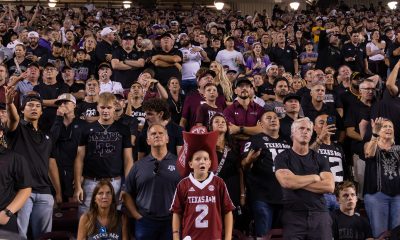
 Sports3 weeks ago
Sports3 weeks agoSEC Conference imposing a fine will create the opposite effect.
-

 Motorsports2 weeks ago
Motorsports2 weeks agoNASCAR This Week – Patriot Publishing LLC
-

 Health2 weeks ago
Health2 weeks agoFlorida assault survivor shares hope for change with new mental health law
-

 Youtube2 weeks ago
Youtube2 weeks agoFunniest MLB rain delay moments


















 (via @jcschools_/IG)
(via @jcschools_/IG)















